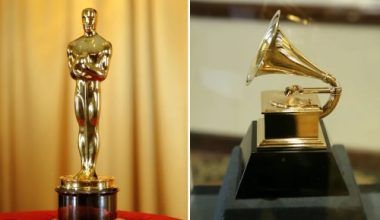When we think about the music industry, it’s impossible not to wonder: Who is the biggest in the music industry right now? Music is everywhere—on your morning playlist, at festivals, or even in commercials—and some names shine brighter than others. But what does “biggest” really mean? Is it about fame, record sales, influence, or longevity? Let’s explore this fascinating question together.
Defining “Biggest” in the Music Industry
Before we jump into the who, let’s clarify what “biggest” means. Are we talking about someone with the most chart-topping hits? Or perhaps it’s an artist who has left an indelible mark on society. The biggest in the music industry might also be the one breaking streaming records, filling stadiums, or influencing generations.
For example, Beyoncé isn’t just a singer; she’s a global icon who inspires millions. Similarly, Taylor Swift has redefined what it means to be a songwriter and performer in the modern era. And let’s not forget music producers like Quincy Jones or Max Martin, whose work behind the scenes has shaped the soundtracks of our lives.
Artists Who Dominate the Charts
Let’s talk about numbers. If we’re going by record sales, some of the biggest in the music industry include legends like Michael Jackson, The Beatles, and Madonna. These icons have sold hundreds of millions of records worldwide.
But if we shift the lens to streaming platforms like Spotify and Apple Music, newer artists like Drake, Billie Eilish, and Ed Sheeran emerge as powerhouses. For instance, Drake’s domination on Spotify charts makes him a strong contender for the title of “biggest.”
Taylor Swift, too, deserves a mention here. She shattered multiple records with her re-releases of Fearless and Red, proving that her influence only grows with time.
Influence Beyond Music
Being the biggest in the music industry isn’t just about sales or streams. It’s also about cultural impact. Who hasn’t heard of Rihanna? She’s not just a singer but also a fashion mogul with her Fenty brand, redefining beauty standards globally.
Similarly, BTS has made history as the first Korean band to achieve worldwide superstardom. Their music has bridged cultures, and their message of self-love resonates with millions.
And we can’t forget about hip-hop legends like Jay-Z and Kanye West, whose contributions to music, fashion, and even politics have cemented their legacies as industry giants.
The Power of Collaboration
One hallmark of being the biggest in the music industry is the ability to collaborate with other giants. Think about Lady Gaga teaming up with Tony Bennett or Eminem collaborating with Rihanna. These partnerships often lead to timeless hits, broadening the reach of both artists.
In today’s music scene, collaborations like Bad Bunny and Drake or Beyoncé and Shakira bring together diverse audiences, proving that music truly has no boundaries.
Music Producers: The Unsung Heroes
While singers often take the spotlight, music producers play a massive role in shaping the industry. People like Pharrell Williams, Timbaland, and Rick Rubin have created iconic sounds that define entire eras. Their contributions might not always be visible, but their impact is undeniable.
Take, for example, Max Martin, who has penned countless hits for stars like Britney Spears, Katy Perry, and The Weeknd. His ability to craft chart-toppers makes him one of the biggest forces in music today.
Longevity: Staying Relevant Over Decades
Another way to measure “biggest” is by looking at artists who have stayed relevant over decades. Consider Elton John, whose music spans generations, or Mariah Carey, whose Christmas classic All I Want for Christmas Is You becomes the soundtrack of the holidays every year.
Even newer artists like Adele, whose emotional ballads connect deeply with listeners, show signs of long-term relevance. The ability to adapt and evolve with changing times is crucial in staying on top.
Streaming Giants vs. Traditional Icons
In the era of streaming, artists like Billie Eilish, Doja Cat, and Olivia Rodrigo have risen quickly to fame. They represent a new generation of music icons who dominate TikTok trends and Spotify playlists.
However, traditional icons like Bruce Springsteen and Paul McCartney continue to sell out arenas, showing that their fan bases are as loyal as ever.
Global Stars: Expanding Beyond Borders
When discussing the biggest in the music industry, we can’t ignore the global stars. Artists like Shakira, Bad Bunny, and BLACKPINK have brought Latin and K-pop music into the mainstream. Their influence goes beyond language barriers, proving that music truly is a universal language.
Even Afrobeat stars like Burna Boy and Wizkid are putting African music on the world stage, showcasing the rich diversity of the global music scene.
Conclusion: Who Is the Biggest in Music Today?
So, who is the biggest in the music industry? The answer depends on how you define it. If you’re looking at pure numbers, names like Drake, Taylor Swift, and BTS come to mind. For cultural impact, it’s hard to beat Beyoncé or Rihanna. And if you’re thinking globally, artists like Bad Bunny and BLACKPINK are leading the charge.
Ultimately, the beauty of the music industry lies in its diversity. There’s no single biggest artist—because music is deeply personal. But one thing’s for sure: the giants of the industry, both past and present, continue to shape the soundtrack of our lives.
For further reading, explore these related articles:
- How to Make a Birthday Song for Your Friend: A Simple Guide
- Diplo Songs – A Journey Through His Best Tracks
For additional resources on music marketing and distribution, visit Deliver My Tune.






